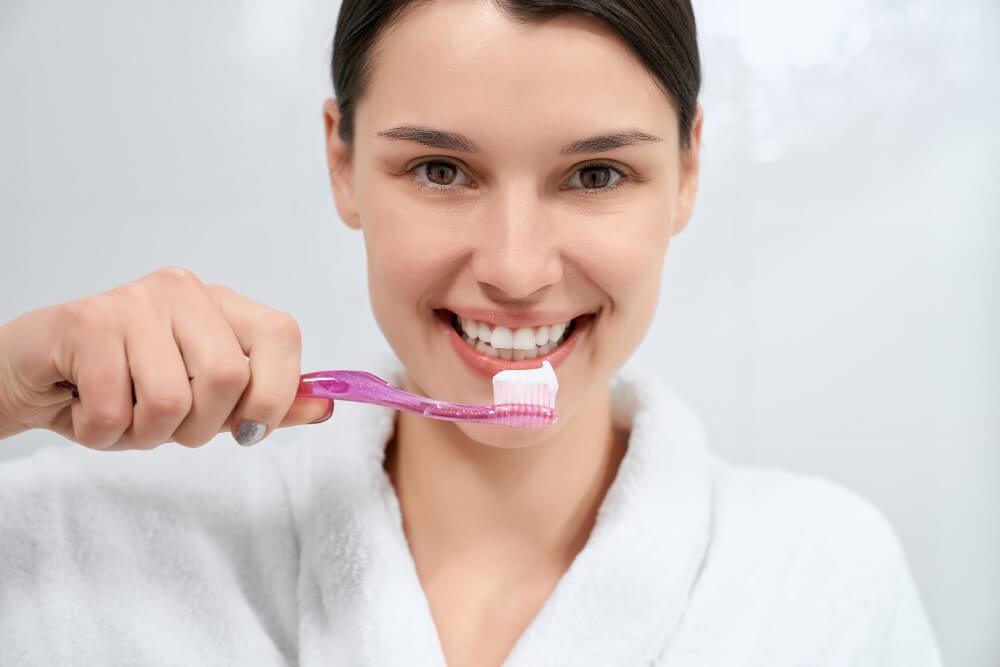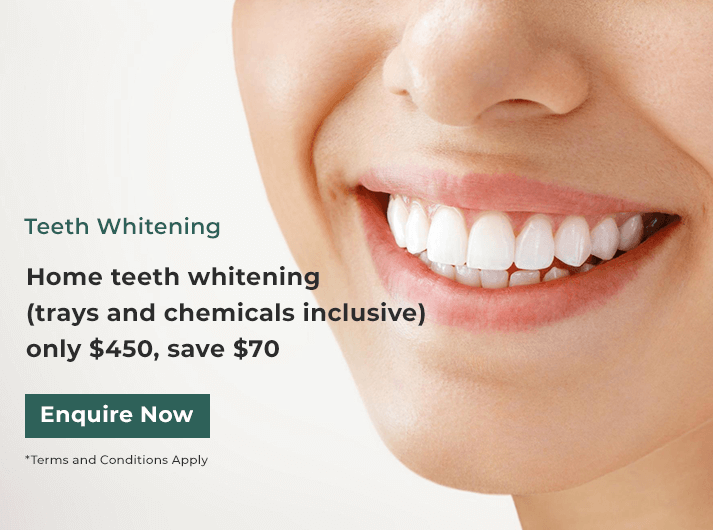Does Teeth Whitening Damage Enamel?

Teeth whitening is one of the most popular ways to enhance your smile. Whether you’re using an at-home kit or visiting your dentist for professional whitening, the goal is the same: whiter, brighter teeth that boost your confidence.
However, with so many people turning to whitening treatments, it’s entirely valid to ask the big question: Does teeth whitening damage enamel?
Let’s talk honestly about it. While the idea of gleaming white teeth is appealing, the health of your enamel—the protective layer of your teeth—should always come first.
What Is Tooth Enamel?
Your teeth’s strong outer layer is called tooth enamel. It protects the softer layers beneath from decay, sensitivity, and damage.
Once enamel is worn down, it cannot regrow. That’s why any treatment involving your teeth needs to be gentle on this essential layer.
So when you decide to whiten your teeth, the last thing you want is to trade a brighter smile for weakened enamel.
Here’s the Good News (and the Caution)
Most teeth whitening treatments don’t permanently damage enamel—as long as they’re used correctly and under professional guidance.
Whitening products generally use one of two active ingredients: hydrogen peroxide or carbamide peroxide. These are bleaching agents that penetrate the enamel and break down stains inside the tooth.
That’s right—most whitening methods don’t strip the enamel itself. Instead, they go beneath it.
However, problems arise when:
- You overuse whitening products
- You use a product that’s too harsh for your teeth
- You whiten without checking in with a dental professional
If you’ve ever felt tooth sensitivity or gum irritation after whitening, you’re not imagining it. These are common side effects.
But they don’t necessarily mean your enamel is being damaged—they’re often temporary reactions that go away once you stop the treatment. That said, overuse or improper use can lead to weakened enamel over time, especially if you’re reaching for strong, unregulated products without knowing how they’ll affect your teeth.
Signs You Might Be Overdoing It
If you’ve been whitening often and you’re starting to experience:
- Sharp sensitivity to hot or cold
- A dull or chalky look to your teeth
- Lingering discomfort when brushing
It might be time to hit the pause button. These could be signs that your enamel is under stress. Teeth whitening should make your smile healthier and brighter, not cause you discomfort or long-term issues.
Professional Whitening vs. DIY Kits
Let’s be honest—DIY whitening kits are everywhere, and they’re tempting. They’re affordable, convenient, and marketed as being just as good as the dentist’s version. But here’s the catch: not all kits are created equal.
When you whiten your teeth at the dental clinic, your dentist assesses your oral health first. They determine whether your enamel is strong enough, whether you have underlying decay or gum issues, and what concentration of bleaching agent is safe for your unique smile.
With store-bought kits, there’s no personalised guidance. Some of these kits contain high levels of peroxide, which can irritate your gums and enamel if left on too long.
Others may be too weak, leading you to overuse them, thinking more applications equal better results—which often isn’t true. That’s why many people prefer professional teeth whitening.
You’re not only getting faster, more noticeable results—you’re also protecting your enamel with a treatment designed just for you.
What If You Already Have Sensitive Teeth?
If you’ve got sensitive teeth, you’re not alone—and you’re not automatically disqualified from whitening. You need to take a more cautious approach.
There are enamel-safe options and desensitising gels that can be used before and after whitening to help minimise discomfort.
Before beginning treatment, discuss sensitivity with your dentist. They may suggest a gentler method or a slower-paced plan to brighten your smile safely.
Keep in mind that the objective is to improve your smile, not to endure the discomfort of having whiter teeth.

How to Keep Your Enamel Strong (Even While Whitening)
Want the best of both worlds—white teeth and strong enamel? Here’s how to get it:
- Use fluoride toothpaste. This helps remineralise your enamel and keep it resistant to wear.
- Avoid acidic food and drinks right after whitening. Your enamel is more vulnerable post-treatment.
- Don’t over-whiten. Stick to recommended schedules. Whitening every few months is usually enough.
- Stay hydrated. Saliva naturally protects your enamel. Drink water regularly, especially after meals.
- Brush gently. Use a soft-bristled brush and avoid scrubbing aggressively, especially after whitening.
- Visit your Gordon dentist. They can monitor your enamel and recommend whitening touch-ups when it’s safe.
Teeth whitening doesn’t have to damage your enamel. But like anything involving your health, it needs to be approached with care, knowledge, and a little professional support.
A dazzling smile should come with confidence, not at the expense of compromise. If you’re considering whitening, don’t rely on guesswork or online promises.
Consult with someone who understands the delicate balance between cosmetic results and long-term oral health.
Teeth Whitening in Gordon
If you’ve been holding off on whitening because of concerns about enamel damage, now’s the time to take that next step—with confidence. At Northern Dental Gordon, we offer enamel-safe teeth whitening treatments tailored to your needs.
Whether you want an in-chair treatment or a trusted take-home kit, we’re here to guide you.
Book your appointment today, and let’s brighten your smile without compromising your tooth health. Because you deserve results, you can feel good about—inside and out.
Contact us at (02) 9498 8290 or visit us at Suite 3, 2 St Johns Ave in Gordon.


